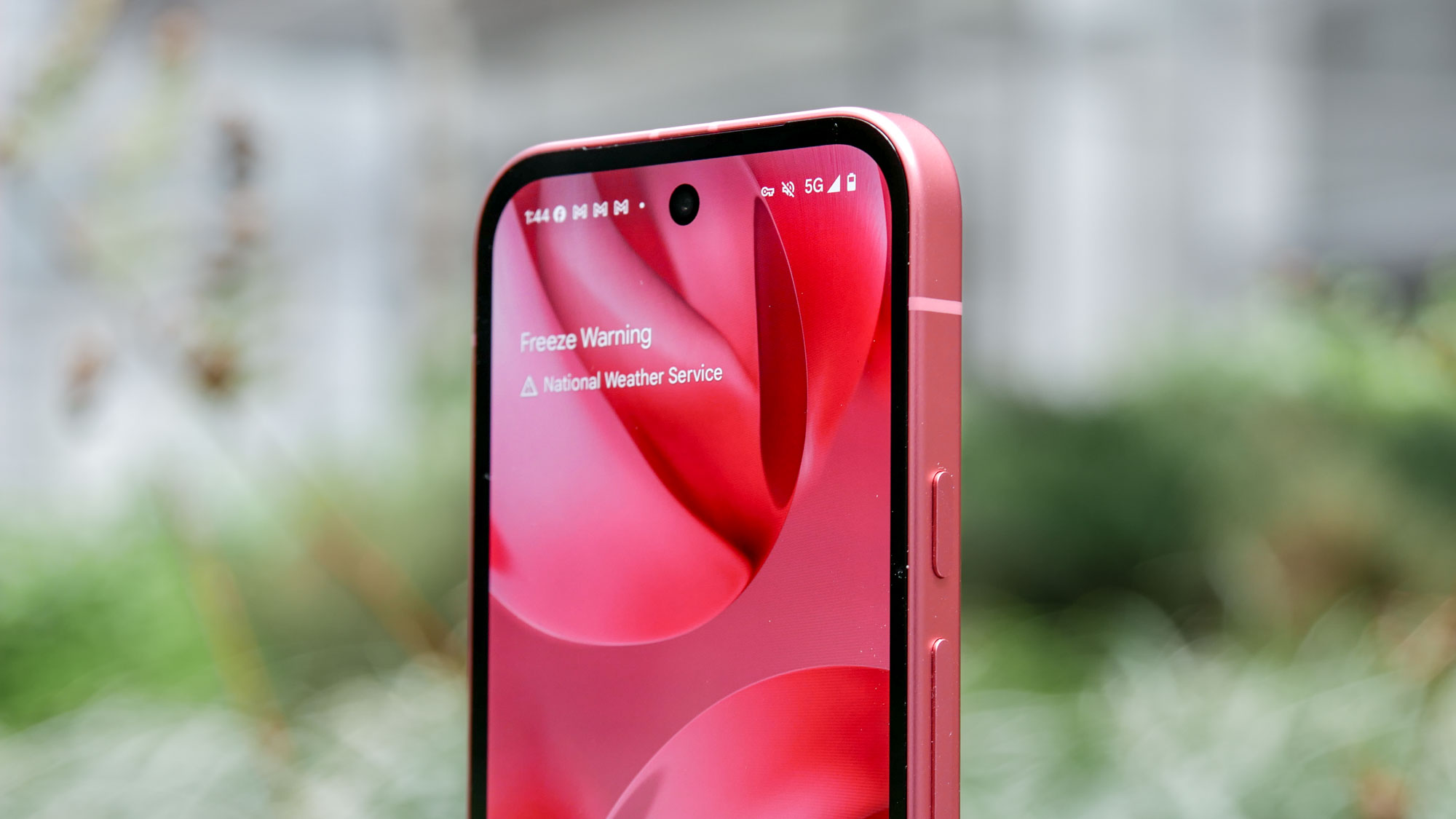Pixel 4 vs iPhone 11 Pro: What Should You Buy?
The Pixel 4 looks like a killer camera phone with nifty gesture controls, but can it take down Apple?
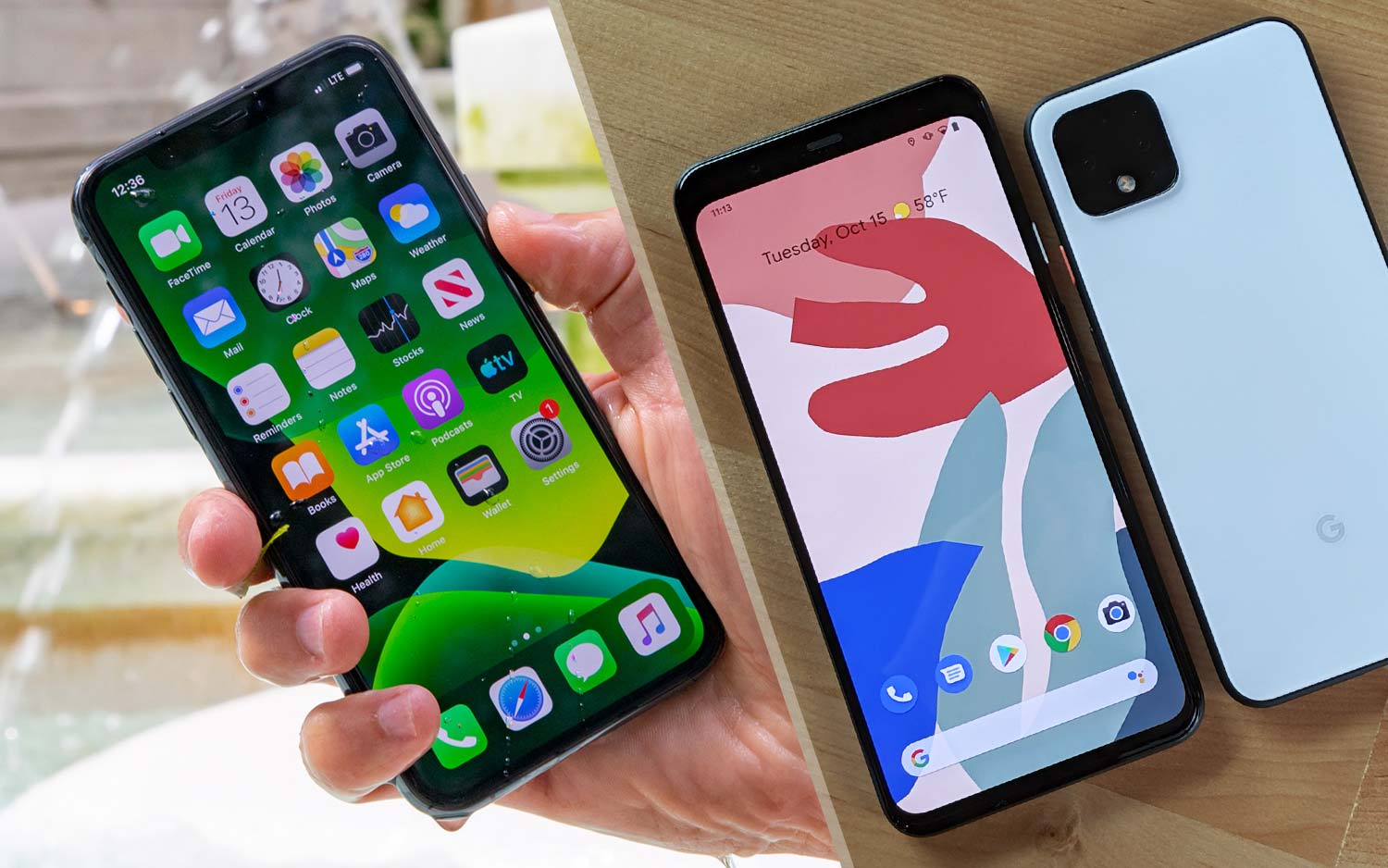
Updated Nov. 5: We've added test results and photo comparisons between the Pixel 4 and iPhone 11 Pro.
The iPhone 11 Pro and iPhone 11 Pro Max are all about photography, with triple-lens cameras that can capture stunning nighttime shots and better portraits. But Google wasn't going to let Apple win that easily. The Pixel 4 and Pixel 4 XL arrived a month after the iPhone's launch with ultra-intelligent dual-lens arrays that (literally) shoot for the stars.
The Pixel 4 and Pixel 4 XL also challenge Apple with new Motion Sense gestures, a Face Unlock system to rival Face ID and a faster Google Assistant. We put the Pixel 4 through its paces to see how it stacks up to the iPhone 11 Pro. Here's how they compare following our tests. (You can also look at our face-off between the iPhone 11 Pro Max and Pixel 4 XL to see how the two phablets measure up.)
Pixel 4 vs. iPhone 11 Pro: Specs compared
| Row 0 - Cell 0 | iPhone 11 Pro | Pixel 4 |
| Starting Price | $999 | $799 |
| Screen Size (Resolution) | 5.8-inch Super Retina XDR (2436 x 1125) | 5.7-inch (Full HD+) |
| CPU | A13 Bionic | Qualcomm Snapdragon 855 |
| RAM | Unknown (reportedly 4GB) | 6GB |
| Storage | 64GB, 256GB, 512GB | 64GB, 128GB |
| microSD? | No | No |
| Rear Cameras | 12-MP wide (f/1.8), 12-MP ultra wide (f/2.4), 12-MP telephoto (f/2.0) | 12-MP wide-angle + 16-MP telephoto (4K video) |
| Front Camera | 12-MP (f/2.2) | 8-MP (1080p video) |
| Battery | 3079 mAh | 2800 mAh |
| Battery Life (Hrs:Mins) | 10:24 | 8:03 |
| Colors | Gold, Space Gray, Silver, Midnight Green | Just Black, Clearly White, Oh So Orange |
Pixel 4 vs. iPhone 11 Pro: Price and availability
The Pixel 4 ($799) undercuts the $999 iPhone 11 Pro on price now that it's on sale. (Check out our roundup of the best Pixel 4 deals as well as the best iPhone 11 deals.) The biggest change with this year's Pixel launch is the expansion of carrier availability. Now all the major U.S. carriers, including AT&T, Verizon, T-Mobile and Sprint, will offer the Pixel 4, which will make it easier to upgrade in-store or online.
If you want more storage than the base 64GB on the Pixel 4, an upgraded 128GB version of both phones is available for $100 more. That's still less than what you'd pay for the base model iPhone 11 Pro.
In addition to the $999 64GB base model, Apple offers 256GB and 512GB storage options, with each model adding an extra $150 to the final cost.
If finding the lowest price is your highest priority, Google wins.
Winner: Pixel 4
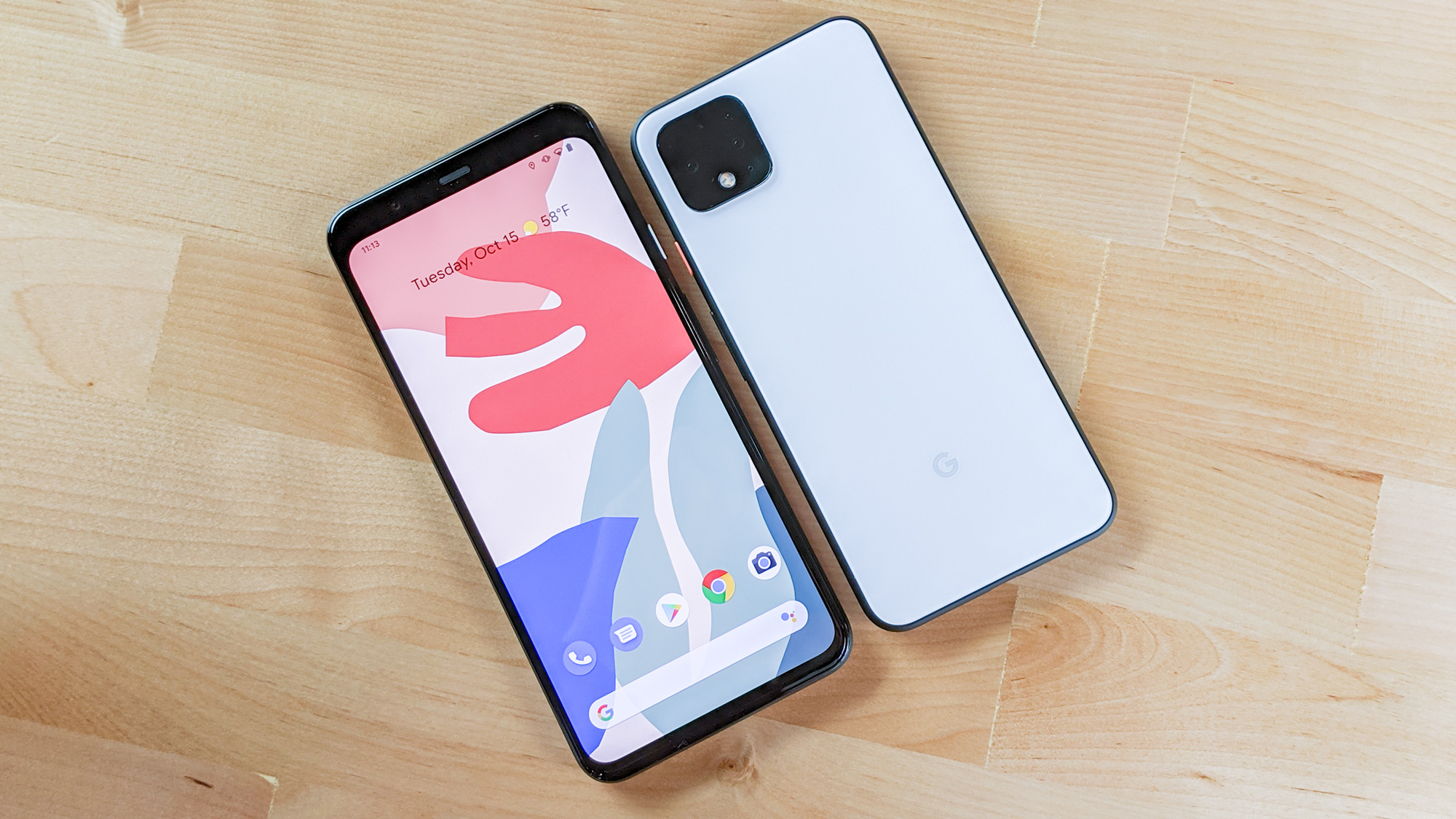
Pixel 4 vs. iPhone 11 Pro: Display
The Pixel 4 and iPhone 11 Pro look more than slightly similar when viewed from the back. Google embraced the contentious square camera patch for the Pixel 4's dual-lens shooter, following the trend started by Apple with the iPhone 11 Pro. (Other dual- and triple-lens smartphone cameras are usually stacked on top of each other or side-by-side.)
There are a few other similarities. Both phones come in two sizes: 5.7 and 6.3-inches for the Pixel 4 and Pixel 4 XL, and a slightly larger 5.8 and 6.5 inches for the iPhone 11 Pro and 11 Pro Max.
But when you flip the devices over, the displays are completely different. Google ditched the notch for the Pixel 4, embracing a thicker top bezel to hide the radar chip that powers the phone's face recognition and Motion Sense. Apple stuck with the notch for the iPhone 11 and 11 Pro Max.
The Pixel 4's 5.7-inch screen is full-HD+, while Apple used its Super Retina XDR technology for both iPhone 11 Pro models. Google's phones can now adjust to a 90 Hz refresh rate depending on what you're looking at, which makes the browsing experience ultra-smooth and gives Google's phones a leg up over Apple's.
That's good for Google, because the iPhone 11 Pro is much brighter than the Pixel 4. Using a light meter, we measured the iPhone 11 Pro at 752 nits of brightness, far outshining the Pixel 4 and its 429-nit reading. The Pixel 4 captures more of sRGB color spectrum (130.1% vs.118.6%), but the iPhone's colors are slightly more accurate, based on a superior Delta-E score.
Winner: Pixel 4
Pixel 4 vs. iPhone 11 Pro: Design
When it comes to design, Apple has the edge. The Pixel 4 and Pixel 4 XL come in three shades: a matte Clearly White, the glossier Just Black and a vibrant Oh So Orange. The iPhone 11 Pro and Pro Max come in four matte hues: Space Gray, Silver, Gold and a new Midnight Green.
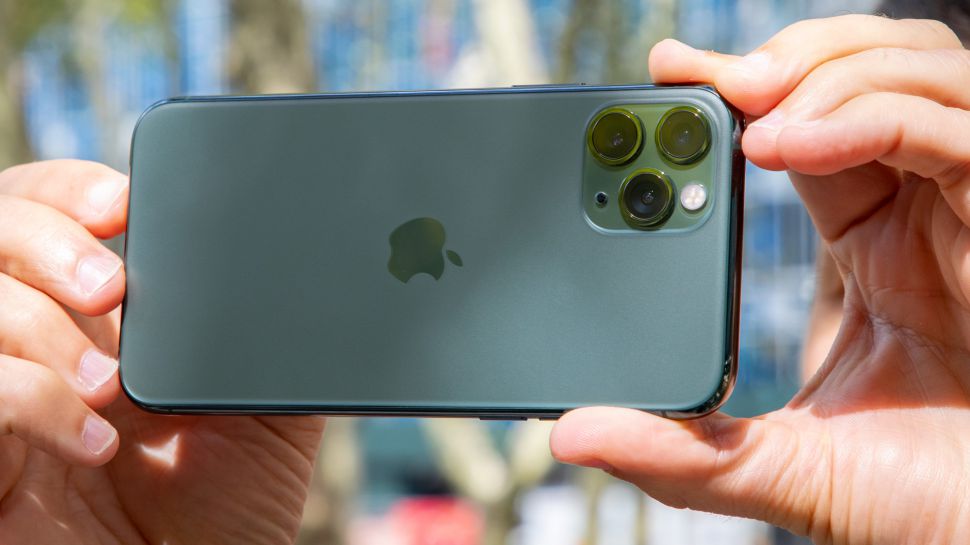
The iPhone's design is a little more premium to our eye, as the glossy back of the black Pixel 4 picks up too many fingerprints. (We prefer the matte finish on the white and orange models.) The iPhone 11 Pro and Pixel 4 have identical water resistance ratings, but the iPhone can withstand a greater depth (4 meters vs. 1.5 meters for the Pixel).
Winner: iPhone 11 Pro
Pixel 4 vs. iPhone 11 Pro: Performance
When it comes to performance, we didn't the Pixel 4 to blow the iPhone 11 Pro out of the water. In fact, vice versa — Google is using Qualcomm's Snapdragon 855 processor, which is plenty fast, but nowhere near as powerful as Apple's A13 Bionic chip. The A13 consistently outperforms the Snapdragon 855 on every test.
At least we can say we weren't disappointed. The iPhone 11 Pro demolished the Pixel 4 on Geekbench 5, which measures overall performance. The iPhone 11 Pro's score of 3,251 was well ahead of the Pixel's 2,329 result. Graphics results were similarly skewed in the iPhone's favor, with Apple's phone tallying a score of 6,163 in in 3DMark's Sling Shot Extreme OpenGL ES 3.1 test; the Pixel 4 trailed with a 4,923 result.
That's not to say the Pixel 4 isn't peppy. It runs demanding apps just fine. And its Pixel Neural Core means faster Google Assistant performance. It handles commands at a breakneck pace, especially when compared to the iPhone and Siri.
Qualcomm is introducing a new Snapdragon chip this winter, which we expect will be included in every 2020 flagship starting with Samsung's Galaxy S11 in February, so the Pixel 4 may seem outdated just months after launch.
Winner: iPhone 11 Pro
Pixel 4 vs. iPhone 11 Pro: Cameras
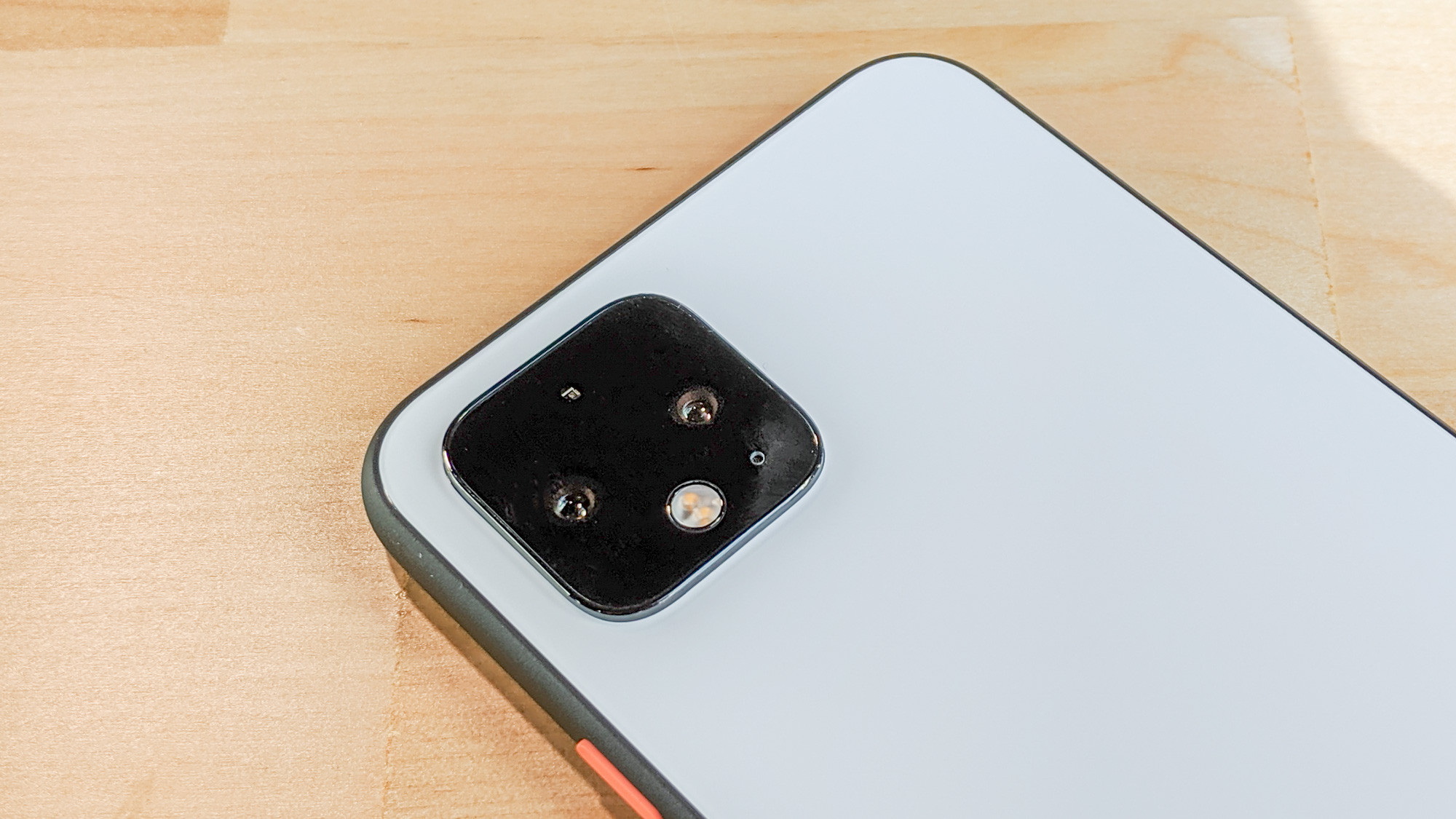
Photography is where the Pixel lineup shines, but Apple has made major strides to elevate the iPhone's camera hardware and software. Here's how the two phones stack up when it comes to camera specs.
The Pixel 4 has a dual-lens rear shooter with a telephoto (16-MP) and wide-angle (12-MP) lens. The iPhone 11 Pro has an additional ultra-wide-angle (12-MP) lens for capturing more detail. Both devices have single front-facing lenses.
But it's behind-the-scenes smarts that Google uses to make the Pixel's photos stand apart from the pack, and the Pixel 4 has plenty of new computational photography features baked in. There are new Dual Exposure controls for tweaking brightness and exposure, improved low-light and action shot processing, and a Live HDR+ view for previewing all of the software magic before you press the shutter. (With prior Pixels, you had no idea what the final image would look like.)
The telephoto lens adds a 2x optical zoom with support for Super Res Zoom, which looks like it will make zoomed-in photos as clear and stunning as if you had cropped them manually.
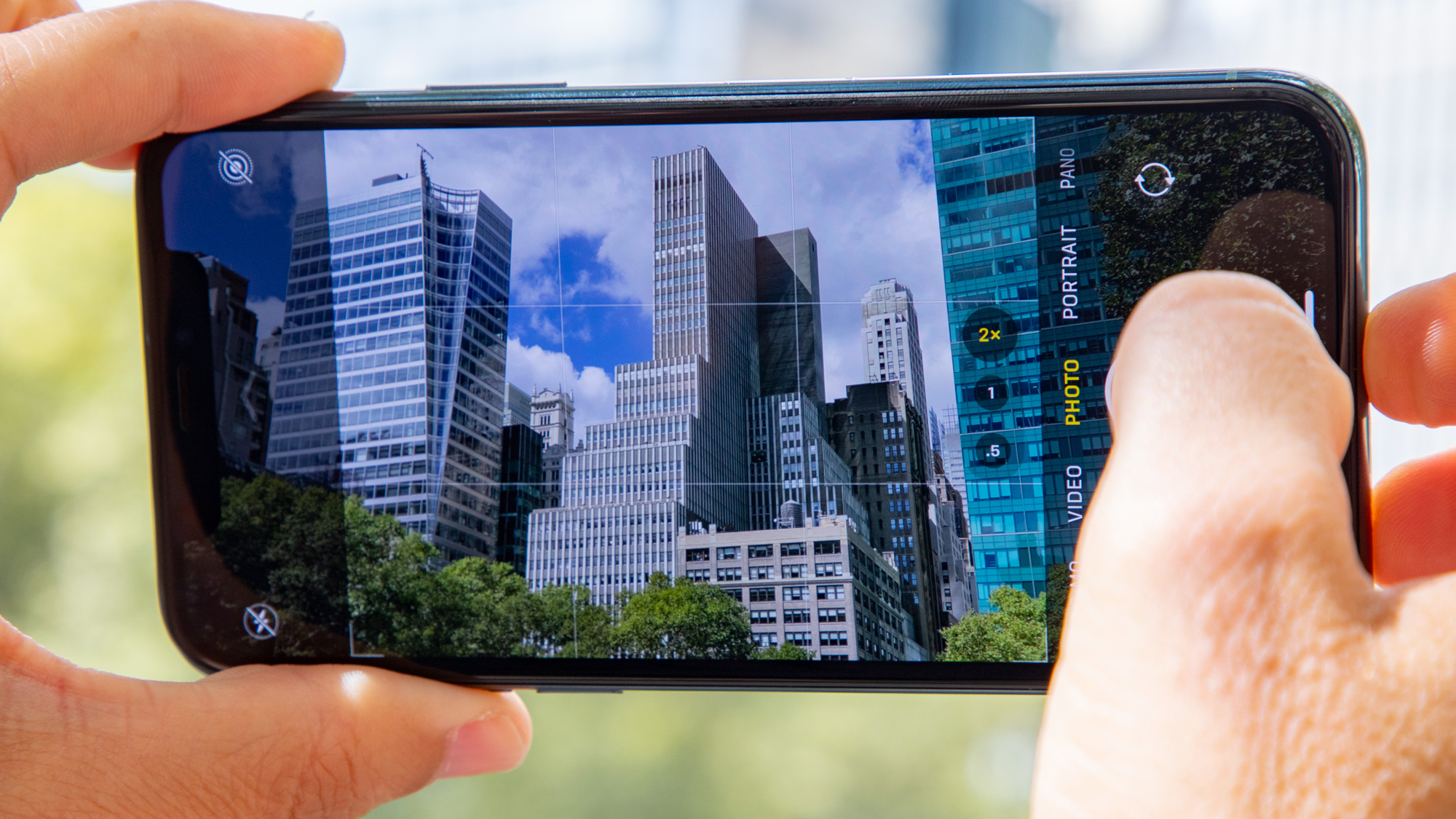
The Pixel already had a great camera. But the iPhone 11 Pro's cameras are so much better than the iPhone XS that we're not sure Google can still hang onto its crown. Apple added a new Night Mode for low-light shots that rivals the Pixel 3's Night Sight. A software camera feature called Deep Fusion, added via software update to the iPhone, stitches together nine shots to create the perfect photo.
We had a camera face-off between the Pixel 4 and iPhone 11 Pro, and Apple's phone won, producing the superior shot in five of the eight categories we tested. The shot above is a good example of how Apple has improved the cameras on its phones. In this shot in the dark, the iPhone handles details well while keeping the ground and surround objects sharp. The Pixel 4's photo is a little too blurry for our tastes.
Putting the phones' telephoto lenses to work, the iPhone 11 Pro produced a nosier photo, especially when you focus in on solid colors like the green of the street signs. But in getting rid of the noise, the Pixel 4 loses some sharpness. As a result, the Pixel 4's effort is a little darker, and it loses details the iPhone captures with ease. (Note that when we zoomed in even more in our photo testing, the Pixel 4's combination of a 2x optical zoom, plus Super Res Zoom software produces a better shot than the iPhone's reliance on digital zoom past 2x.)
While the iPhone 11 Pro edges out the Pixel 4 overall, it's worth noting that Google still makes an impressive camera phone, as this library shot shows. The Pixel 4 lights the scene perfectly and handles exposure so that different tones of the wall are visible and lights aren't blown out.
Winner: iPhone 11 Pro
Pixel 4 vs. iPhone 11 Pro: Battery life
The Pixel 4 has a slightly smaller 2800 mAh battery pack than last year's Pixel 3, while the Pixel 4 XL has a slightly larger 3700 mAh battery than the Pixel 3 XL. But both batteries are smaller than the average Android flagship's, and the battery life on last year's Pixels already failed to impress.
That trend continued this year, as the Pixel 4 lasted only 8 hours, 3 minutes on the Tom's Guide battery test, which involves continuous web surfing over LTE until the phone runs out of juice. That's well below average for a smartphone, and more than two hours behind the iPhone 11 Pro's 10 hour, 24 minute result.
The iPhone 11 Pro now includes a fast 18-watt charger with the phone, and that helped us get Apple's handset back to a 55% charge after 30 minutes. The Pixel 4 charged a touch more slowly, getting to a 47% charger after half-an-hour.
Winner: iPhone 11 Pro
Pixel 4 vs. iPhone 11 Pro: Special features
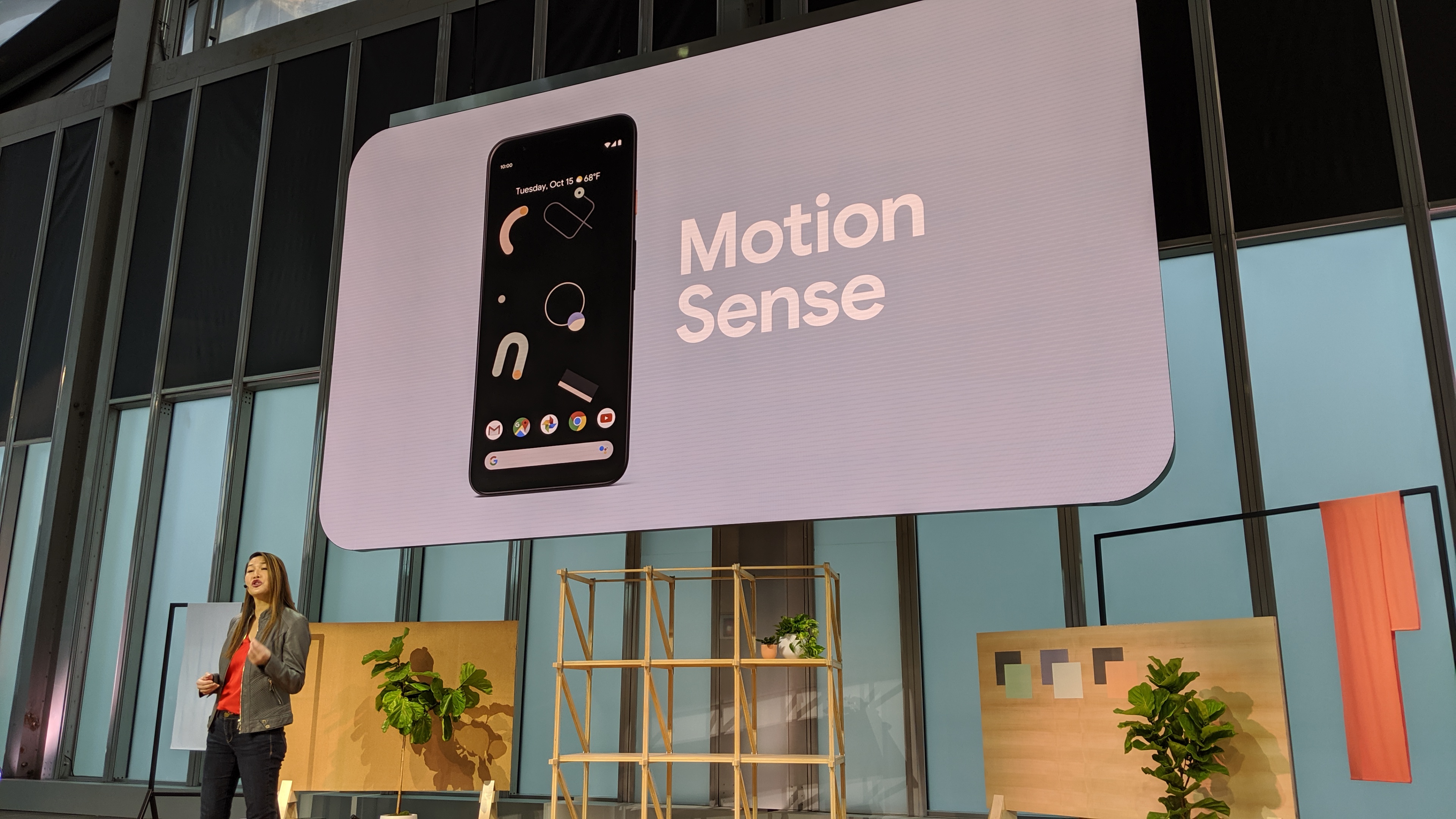
The Pixel 4 is all about game-changing software experiences, many of which make use of the new radar chip next to the front-facing camera. That chip powers ultra-fast facial recognition for unlocking the phone, and support for hand gestures that control the Pixel without touching it. We've seen a similar feature from LG, which was more of a gimmick than a useful way to interact with a phone, but Google's years of work on radar have resulted in a more polished, if still limited, feature.
Google also baked in practical tools like a Recorder app for taking voice memos that can transcribe recordings on the fly. The app also makes those transcriptions searchable, and all of it happens right on the device for those concerned with privacy (i.e. all of us).
Google Assistant is still accessible by squeezing the Pixel's sides, but it's much faster in Pixel 4. Siri is seriously underbaked by comparison.
The iPhone 11 Pro's unique software features are, aside from photography, mostly by way of iOS 13. With Apple's latest version of iOS, you get Dark Mode and a revamped Photos app that makes searching for and categorizing images much simpler. By purchasing an iPhone, you do get a year's subscription to Apple TV Plus, Apple's $5-a-month streaming service. In our Apple TV Plus review, we found it to be a promising service that lacks compelling must-watch shows at launch.
Winner: Pixel 4
The Winner: iPhone 11 Pro
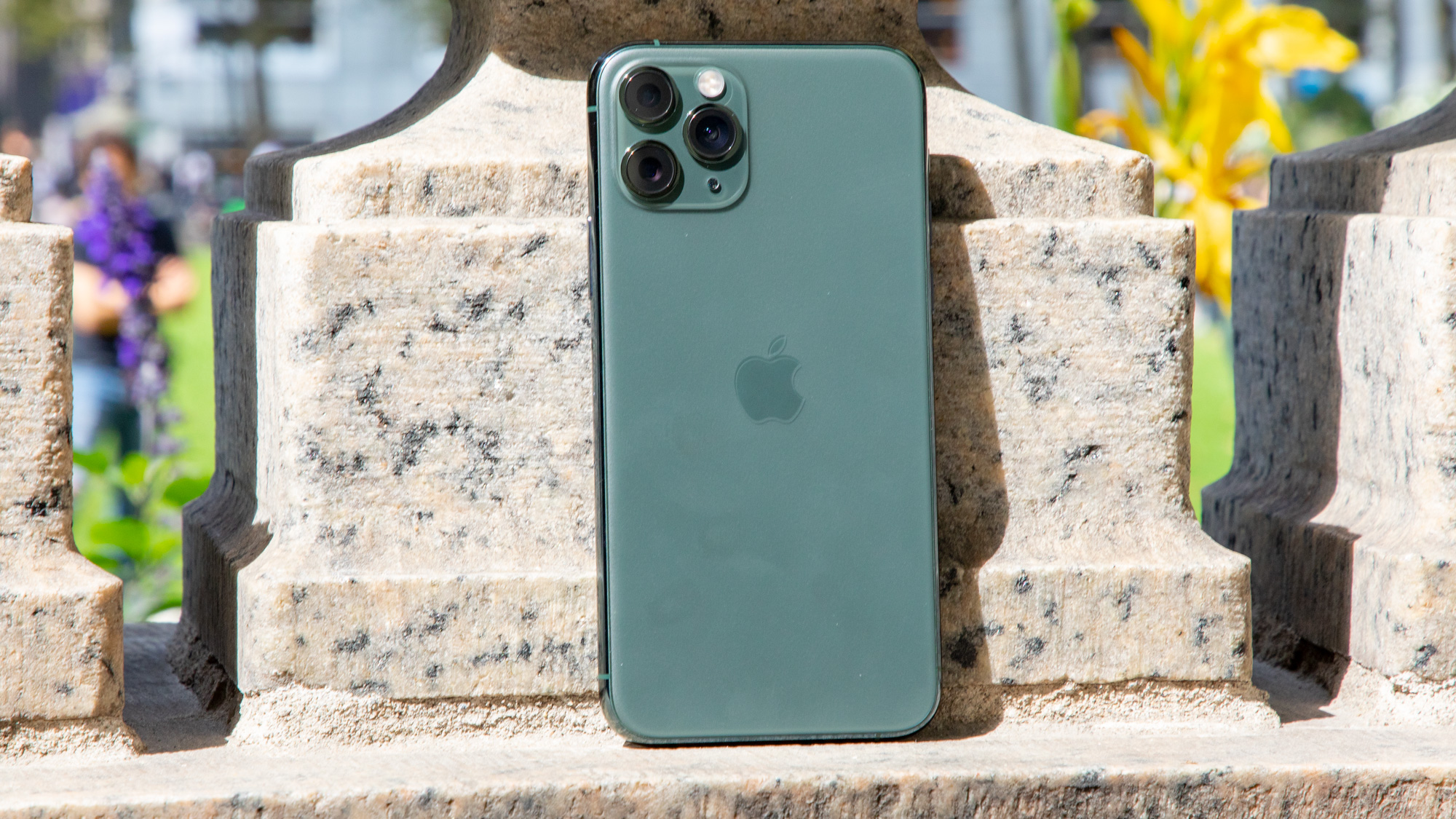
The iPhone 11 Pro tops the Pixel 4, not just because of its superior processor and better battery life, but because it edges out Google's phone in one area that Google used to dominate — mobile photography.
| Row 0 - Cell 0 | Pixel 4 | iPhone 11 Pro |
| Design (10 points) | 7 | 8 |
| Display (15 points) | 13 | 12 |
| Cameras (20 points) | 17 | 18 |
| Motion Sense/Face Unlock (5 points) | 4 | 3 |
| Performance (15 points) | 11 | 15 |
| Battery Life (20 points) | 14 | 19 |
| Software (5 points) | 5 | 3 |
| Price & Availability (10 points) | 8 | 6 |
| Overall (100 points) | 79 | 84 |
The iPhone 11 Pro tops the Pixel 4, not just because of its superior processor and better battery life, but because it edges out Google's phone in one area that Google used to dominate — mobile photography.
There's plenty to like about the Pixel 4, mostly related to Google's skill at leveraging software smarts into compelling features like the Recorder app and the lightning-quick Assistant. We also like the 90-Hz refresh rate on the Pixel 4's display, which is almost enough to make us overlook how dim the screen can be.
Still, despite these improvements, the iPhone 11 Pro remains the smartphone to beat, at least when it comes to Google's phones. Maybe future updates will bring more features to the Pixel, but for now, the iPhone reigns supreme.
Sign up to get the BEST of Tom's Guide direct to your inbox.
Get instant access to breaking news, the hottest reviews, great deals and helpful tips.
Caitlin is a Senior editor for Gizmodo. She has also worked on Tom's Guide, Macworld, PCWorld and the Las Vegas Review-Journal. When she's not testing out the latest devices, you can find her running around the streets of Los Angeles, putting in morning miles or searching for the best tacos.
